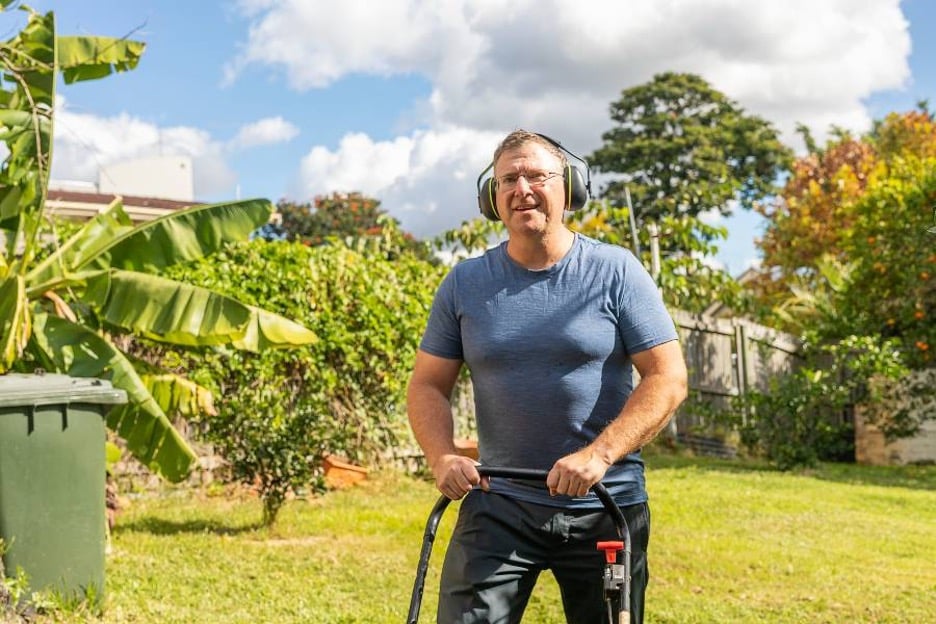Hearing Loss Prevention: Tips and Advice
Hearing is a vital sense that connects us to the world, and following advice and tips for hearing loss prevention from the team at Taylor Hearing Centers, you can take a proactive role in protecting your ears. Even as we age, there are things we can do to protect our hearing. Follow these steps to ensure you’re doing everything possible to maintain good hearing health.
Turn Down the Volume
Exposure to loud noises is one of the leading causes of hearing loss. Sound is measured in decibels (dB), and prolonged exposure to sounds over 85 dB can cause permanent damage to the hair cells in the inner ear, which are crucial for hearing well. Common everyday sounds that can exceed this level include heavy city traffic, lawnmowers, and personal audio devices at maximum volume. Wearing ear protection in loud work environments or when attending live concerts significantly reduces the risk of damaging your ears and developing tinnitus or hearing loss.
Take Breaks From Noise
Regular breaks from loud noise are crucial for maintaining healthy hearing function. Noise-induced hearing loss is cumulative; it builds up over time with each exposure to hazardous levels. Even if sound levels are below the 85 dB mark, continuous noise at lower volumes for hours at a time can cause damage. Given adequate rest and taking breaks from constant noise exposure, your ears can recover. Not giving yourself sufficient recovery time is another cause of tinnitus, permanent damage, and irreversible hearing loss.
Regular Hearing Checks
Regular hearing assessments play an essential role in maintaining healthy hearing. These checks serve as a baseline for your hearing ability and a preventive measure to catch any early signs of loss. Detecting hearing impairment at an early stage is critical because it allows for timely intervention, which can significantly improve the quality of life. There are effective management strategies, such as the use of hearing aids, changes in lifestyle to reduce further noise exposure, and hearing protection products for various activities.
Don’t Stick Objects in Your Ear, Even for Cleaning
Inserting objects into the ear is risky and can lead to severe damage. Common items people are tempted to stick in their ears include cotton swabs, hairpins, and matchsticks in an attempt to clean them. However, this can push earwax deeper into the ear canal, leading to impaction. These items can also scratch the skin and cause infections or even puncture the eardrum, resulting in hearing loss. Ears clean themselves naturally. Avoid inserting any objects into the ears, and seek professional help for ear cleaning and care if necessary.
Exercise Regularly
Maintaining overall health through regular exercise is beneficial for the ears and hearing health. Physical activity increases blood circulation, vital for the ear’s inner workings. Improved blood flow ensures the delicate structures of the inner ear receive an adequate supply of oxygen and nutrients necessary for maintaining their function and preventing damage. Regular exercise also helps manage other health conditions, such as diabetes and cardiovascular disease, which can lead to hearing loss. Activities such as walking, cycling, or swimming are great options.
Be Mindful of Medications That Cause Hearing Loss
Certain medications known as ototoxic can be harmful to your hearing health. Ototoxic medications have the potential to damage the inner ear, leading to hearing loss, tinnitus, or balance disorders. These effects can be temporary or permanent, depending on the drug dosage and duration of use. Examples of ototoxic medications include
- Aminoglycoside antibiotics, such as gentamicin
- Chemotherapy drugs, such as cisplatin
- Loop diuretics used to treat high blood pressure and heart failure
- Certain pain relievers taken in large doses
It’s crucial to discuss any potential hearing risks with your healthcare provider before starting new medications, especially if you are already at risk for hearing loss.
Avoid Tobacco Products and Nicotine
Tobacco smoke, comprising numerous harmful chemicals, negatively impacts hearing health by reducing blood flow to the inner ear. This lack of blood flow can damage the delicate hair cells, leading to hearing loss. Quitting smoking can halt further damage, allowing the body to improve blood circulation and recover some lost hearing sensitivity. Cessation of tobacco use is a critical step towards preserving hearing health and preventing additional hearing impairment.
Keep These in Mind When Wondering How to Keep Your Ears Safe
It’s simple to take an active role in ear health. Just keep these tips to protect your hearing in mind:
- Schedule yearly hearing evaluations, especially if you’re frequently exposed to loud noises
- Wear ear protection in loud environments
- Keep volume levels down when using headphones or earbuds
- Keep foreign objects out of your ears
- Quit using tobacco products
- Maintain an active and healthy lifestyle
Your Trusted Partners for Hearing Loss Help
Your hearing is an indispensable part of your overall quality of life. Take these hearing loss prevention tips to heart, and consider seeing a professional at Taylor Hearing Centers for personalized advice. We have various hearing care center locations in Tennessee and Arkansas where you can schedule a hearing exam or take an online hearing test from the comfort of your home.

